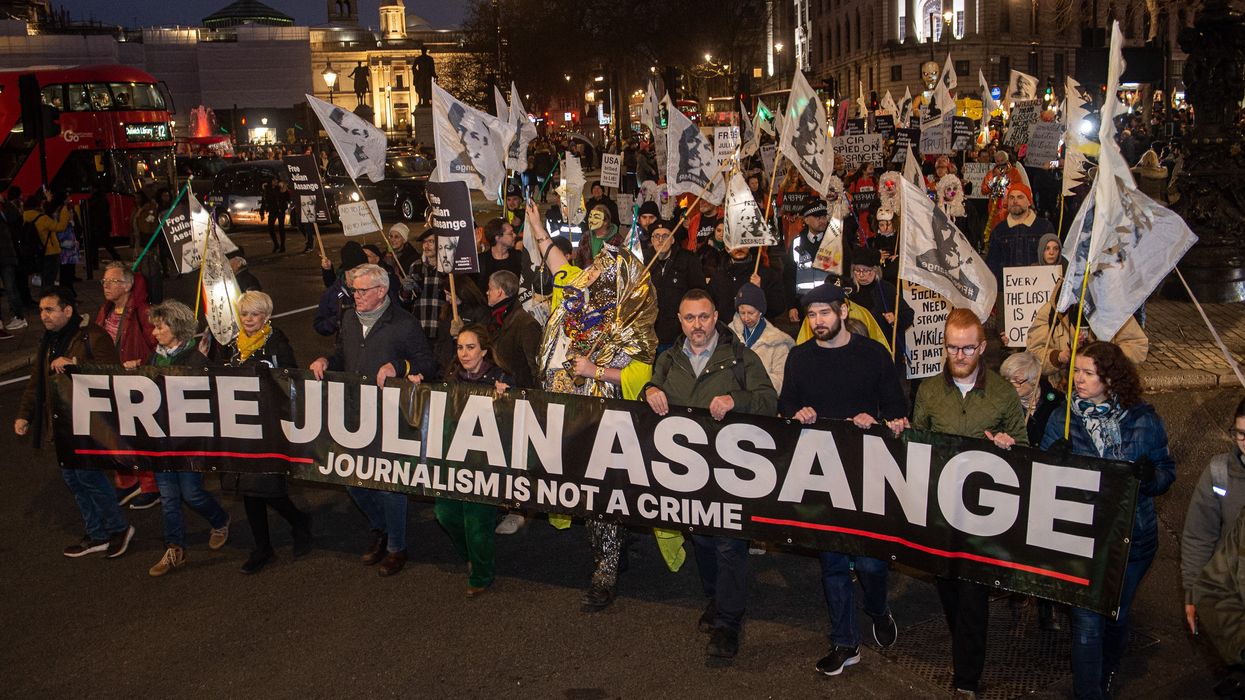UNICEF: Over 5,000 Gaza Children Treated for Malnutrition in May Alone
"Every one of these cases is preventable," said one UNICEF official. "The food, water, and nutrition treatments they desperately need are being blocked from reaching them."
The United Nations Children's Fund said Thursday that childhood malnutrition in the Gaza Strip is "rising at an alarming rate," with more than 5,000 children under the age of 5 treated for the life-threatening condition in May alone as Israel's U.S.-backed genocidal assault and siege against the Palestinian enclave continued for its 20th month.
UNICEF said that 5,119 children between 6 months and 5 years of age suffering acute malnutrition were admitted for treatment in Gaza last month, nearly 50% more than in April and a 150% increase from February, the month before Israel tightened its already crippling "complete siege" of the coastal strip.
Of the children admitted for treatment in May, 636 were diagnosed with severe acute malnutrition, the most lethal form of the condition.
"In just 150 days, from the start of the year until the end of May, 16,736 children—an average of 112 children a day—have been admitted for treatment for malnutrition in the Gaza Strip," UNICEF regional director for the Middle East and North Africa Edouard Beigbeder said in a statement.
"Every one of these cases is preventable," Beigbeder continued. "The food, water, and nutrition treatments they desperately need are being blocked from reaching them. Man-made decisions that are costing lives. Israel must urgently allow the large-scale delivery of lifesaving aid through all border crossings."
"This is an urgent warning. Concerted action is immediately needed to stop starvation from escalating, malnutrition from rising, disease from spreading, water from running dry, and ultimately, to prevent mounting, wholly preventable child deaths," Beigbeder added. "Humanitarian aid and commercial goods must be allowed to enter, from all available crossings, and be delivered quickly, safely, and with dignity to families in need wherever they are."
Gaza medical officials said late last month that more than 300 Palestinians—including many children and elders—had recently died from malnutrition and lack of medical care due to Israel's siege and bombing.
UNICEF said Thursday that "if the situation does not change immediately... cases of acute malnutrition are likely to continue to rise in coming weeks and could reach the highest level since the beginning of the conflict. This is among a population of children where wasting was non-existent 20 months ago."
The agency continued:
UNICEF has been able to deliver hundreds of pallets of supplies to prevent and treat malnutrition in the last three weeks, but these supplies are wholly inadequate and insufficient compared to the tremendous needs and broader context. The amount of ready-to-use-therapeutic-food (RUTF), a lifesaving essential for children suffering from acute levels of malnutrition, is running critically low.
The conflict has damaged or destroyed essential water, sanitation, and health systems in the Gaza Strip, and has limited the ability to treat severe malnutrition, with just 127 of 236 treatment centers remaining functional, due to displacement orders and incessant bombardments.
In addition to Israel's ethnic cleansing of Gaza—part of Operation Gideon's Chariots, the Israel Defense Forces campaign to conquer and occupy the strip—IDF troops have been committing near-daily massacres of aid-seeking Palestinians.
Over the past 621 days, Israeli forces have killed at least 55,493 Palestinians and wounded more than 129,300 others in Gaza, according to the Gaza Health Ministry. At least 14,000 people are missing and presumed dead and buried beneath rubble in the obliterated strip. More than 16,000 children have been killed.
Israel's conduct in the war is the subject of an International Court of Justice genocide case, and Israeli Prime Minister Benjamin Netanyahu and former Defense Minister Yoav Gallant are wanted by the International Criminal Court for alleged crimes against humanity and war crimes including weaponized starvation.
Human rights defenders warned against losing focus on Gaza amid Israel's widened war on Iran and possible U.S. intervention.
"As Israeli leaders decry alleged war crimes about Iran's retaliatory strikes, they are still starving two million people in Gaza," journalist Abby Martin said on social media Thursday. "Every day, they bait the starving masses and kill them en masse. Don't forget about Gaza."


